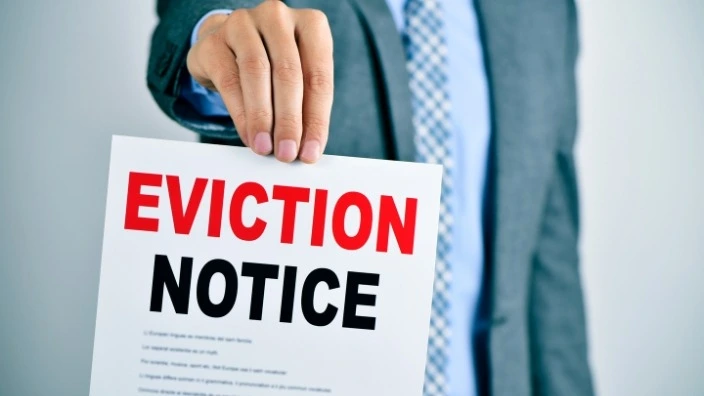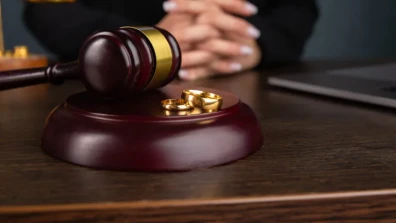Eviction is considered a civil procedure through which a landlord legally expels a tenant from his rental property on grounds of defaults on the part of the tenant or sequel to the violation of the terms of the understanding. This may happen if a tenant defaults in payment or commits a violation of other terms of the agreement.
If a bad rental history is recorded, it becomes difficult to continue or obtain any property on rent therefore the article significantly discusses ‘how to get eviction off your record’ the means to ensure removal of the history so as not to become a hurdle for future tenancy relationships.
Municipalities and state governments in the US are responsible for looking after eviction matters per law and the matters are set to be decided on an urgent basis. It is legally required that a landlord will inform the tenant that he will soon get a legal notice explaining the reasons for eviction and in light of that notice, the tenant needs to leave the property as per law.
Eviction notice refers to a letter aimed to propagate compliance to the lease agreement or in the other case, just vacate the property. Therefore, eviction proceedings are initiated in the court of law to get an order of eviction of the tenant from the rented premises.
Table of Contents
- Working of Eviction
- Dynamic of Rent Laws
- Courts burdened with eviction matters
- Rights of the landlord
- Why eviction proceedings are not the first option
- Evictions in the aftermath of Covid 19
- Pros and Cons of Eviction:
- Is it possible to get Eviction off Your Record?
- Steps to Get Your Eviction off Your Record:
- Approach Court in case of Wrongful Eviction
- Settle your Rental Debts to get eviction off your record
- Apply to remove collections from your Credit Report
- Ask to have the eviction removed from the tenant-screening reports
- Ensure the Removal of Negative Actions
- Disputes with Tenant-screening Agencies and Credit Bureaus
- How to get premises on rent with eviction on record
- Conclusion
- FREQUENTLY ASKED QUESTIONS:
Working of Eviction

Landlords and tenants enter into different lease agreements subject to the legality of the tenant-landlord regulations. The law provides that any landlord cannot evict a tenant without a good legal cause/ reason.
Normally, eviction notice reasons include non-payment of rent, any illegal activity in the rented property, damages to the property, expiry of the term of the lease, or the terms and conditions violation associated with the lease agreement.
A study by Princeton University publicizes that landlords are also permitted to expel tenants at will in some states of the US. Such laws then are misused by the landowners to expel the tenants even if they haven’t done anything wrong in contravention to the rules and terms of the agreement. This factor points out fingers on the fairness of the legal system in place. This also represents discriminatory legal practices.
Dynamic of Rent Laws
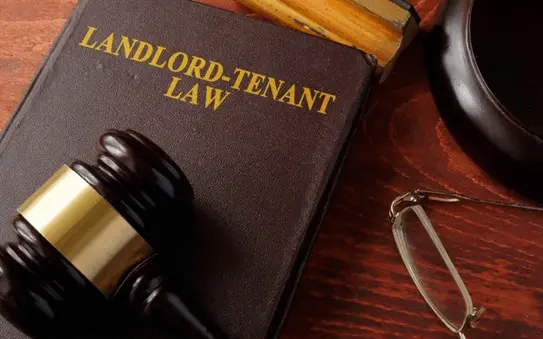
Though the state laws may vary depending on the laws of a particular state the overall legal procedure leading to a tenant’s eviction is the same everywhere. Some specific number of days is given to the tenant in the eviction notice to pay the rent of the property and also to fix any damage to the rented property as per law followed by the eviction of a tenant.
The landlord could also institute a suit to recover the payment of damages along with utility bills or late fee charges on bills from the tenant. Statistics show that in the year 2021, approximately 7 million low-income housing units were needed in the United States but only 5% of low-income house units were available.
Courts burdened with eviction matters
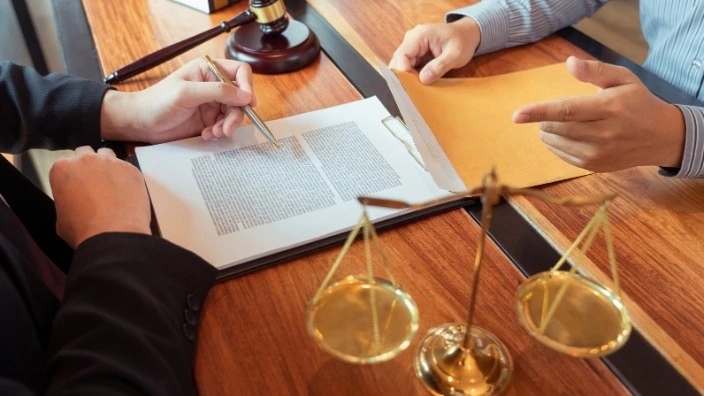
Now this is alarming and should be addressed on an urgent basis. There were reports in 2021 that in that year alone, 750,000 renters could face eviction. This is a huge number of evictions and also burdening the courts with the workload of getting the rented premises vacated due to the reasons attributed, most of the time to the tenants.
The eviction cases are filed, heard and decided by the district courts, the housing courts or small claims courts. During the court session, the presence of both tenant and landlord in court is essential. Evidence of wrongdoing is recorded by the court and the landlord needs to submit those evidence to get a favourable judgement from the court.
Similarly a discourse on the bankruptcy court proceedings has been given another article. To know more about the court proceedings in cases of default read How to Park Your Car to Avoid Repo
Evidence could include photos, text messages, emails, oral evidence and documentary evidence in support of the claim or against the claim. However, the courts give weightage to the direct evidence to support any plea than placing on record any circumstantial proofs or evidences.
Rights of the landlord
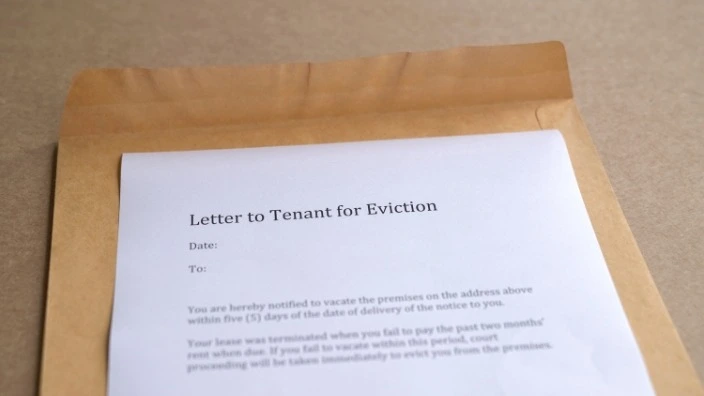
The landlord through an eviction notice gets an option to sue the tenant lawfully in court when he fails to follow the agreement terms and conditions.
Types of Eviction Notice
There are different types of eviction notices which are mentioned below:
Rent Notice
Rent notices are the ones, that are issued to the tenants to either force them to leave the rented premises or pay the rent. Landlords could benefit from legal facilities and the state laws also vary from state to state but most of them project rights of the landlords.
Eviction Notice for waste, nuisance, assigning, Drug Violation or Unlawful Business

This notice is to inform the tenant that due to alleged waste, nuisance, illegal drug use or unlawful business, the tenant has committed a violation to the obvious terms of the rent agreement and likewise the laws and regulations of the state.
Tenancy at Will Notice
This notice primarily relates to the terms of the agreements decided between the parties. For issuance of this notice, any default on the part of the tenant is not essential. We can explain this by mentioning that if the parties agreed that notice for vacation can be given at the free will of the landlord, then there is no exception to the absolute right agreed for the protection of the landlord in the rent agreement.
Why eviction proceedings are not the first option
For the following reasons, the eviction petitions are avoided from being filed and the parties with mutual consent try to continue with the relationship. However, the following reasons are considered sufficient to opt for alternatives than filling out an eviction petition: -
- It brings the rented premises a bad name where the landlord suffers on account of his asset being given the status of disputed land, while a tenant is forced to leave the premises (residential or commercial in the awkward condition).
- Evictions become frustrating for the landlords too as they also need to pay court expenses to hire an attorney and pay the fee of the court.
- Evictions mostly end up in violent confrontations between the tenant and the landlord so issues need to be resolved to avoid this time.
- Time of the parties is consumed in the litigation and none of the parties could enter into a long-term business venture regarding the rented premises.
Evictions in the aftermath of Covid 19
During the Covid19 outbreak, the government banned evictions due to fear of the virus spreading and a 120-day ban was imposed on landlords not to evict tenants. This order was applied to 43.8 million US residents in 2020. There were a large number of landlords who were complaining of non-payment of rent so they wanted to evict.
However, the ban was dismissed by the Supreme Court and this ban on evictions was lifted. However, during a period for which the ban remained imposed, many of the landlords were deprived of reaping any benefit from the rented premises or carrying out any legal proceedings against the defaulted tenants.
Pros and Cons of Eviction:
For Landlord
Eviction provides an opportunity for the landlord to expel unwilling and defaulting tenants due to non-payment of rent. This can be expensive but the landlords could benefit by going to court and filing a case of eviction.
For Tenants
The impact of eviction would be lasting for tenants. However, those tenants who are in the habit of depriving the landlords of their income may not be ashamed of facing the legal proceedings rather they would continue to face the legal proceedings how a long so ever they would continue.
For Society
Research unveils that the increased eviction rate has a deadly impact on the psychology of society. Destabilization of families through eviction makes communities more vulnerable to crimes and hard for them to locate residence or living space at marginalized rates. It also imposes economic costs on the cities where cities are unable to get taxes and utility bills from the families.
Is it possible to get Eviction off Your Record?

Evictions are prominent hurdles in different states, it is revealed that an eviction could remain on record for 7 years by strongly impacting the housing ability of people and credit ability. Are you facing eviction or are you on the Verge of Eviction? This article could help you more in this regard.
Expunging of eviction is the most suitable way in which you could get your eviction off from your record. If your eviction expunges, then this means that landlords in future won’t see your rental story’s eviction history. Remember! If the eviction is not expunged off the record, neither anybody would be ready to enter into a tenancy agreement with you nor would the terms of the rent agreement be conducive.
The only way in which you may get your eviction off the record is expungement. The states of Minnesota, Oregon and Nevada allow the expungement to happen provided the conditions are met. Different regulations are in place including in California, Florida and Connecticut regarding the operations of expungement from the record. If you want expungement, then just contact your local legal society.
Steps to Get Your Eviction off Your Record:
Approach Court in case of Wrongful Eviction
If you being a tenant hold the view that you have been expelled from the rented premises wrongfully without any plausible cause. You should take the matter to the Court. Only from there, you could get relief. No other person or department qualifies to pass directions for removing the record. You just have to check the laws of your state, and then prove in the court that the landlord got the eviction orders against your rights.
Settle your Rental Debts to get eviction off your record

If you have outstanding legitimate balances associated with your eviction; then focus on paying them as soon as possible. In other cases, if you are not able to pay the overall amount, you should strive to negotiate the amount with the landlord or the collection agency so the due payment may be remitted to the landlord on a flexible basis.
Apply to remove collections from your Credit Report
After your debt or the due rent has been settled, you will still have the collection activity in your credit report. When you negotiate a settlement or make payment, also ask the property manager or collection agency to forward a request to remove the collection from credit from your name. Ensure that collection is removed from your credit along with the entire documentation. Also, get the written agreement.
Ask to have the eviction removed from the tenant-screening reports
It is also suggested to contact the property manager and make a request to remove the eviction record of the tenant in the screening report after the debt has been settled in full. In case the letter is not written and forwarded by the landlord, you can remit the due amount to the landlord and submit the bank details to the department to get your record cleared.
Ensure the Removal of Negative Actions
In case all steps to remove your eviction from the record have been taken by you but still your name appears on the list of the defaulting tenants. Then you just verify the removal of every item associated with your eviction record. Ensure that it has been removed from the credit report as well as from the tenant screening report.
Disputes with Tenant-screening Agencies and Credit Bureaus
When you find different inaccuracies and discrepancies about your eviction record in your credit report, then you must look into the process to file a dispute for the corrections. The tenant-screening companies are also another option to do this. You must show proof of the inaccuracy from your record. After you hand over your proofs, the officials will then start working to correct errors in the record.
How to get premises on rent with eviction on record
It is very challenging to get a premises on rent again after the eviction has been made on your credit. The record shows your negative conduct and the landlords will continue to avoid the tenants like you. However, to get the new premises on rent, you are supposed to follow the given instructions and prepare yourself to get the premises on rent.
Stay up-to-date about your credit record
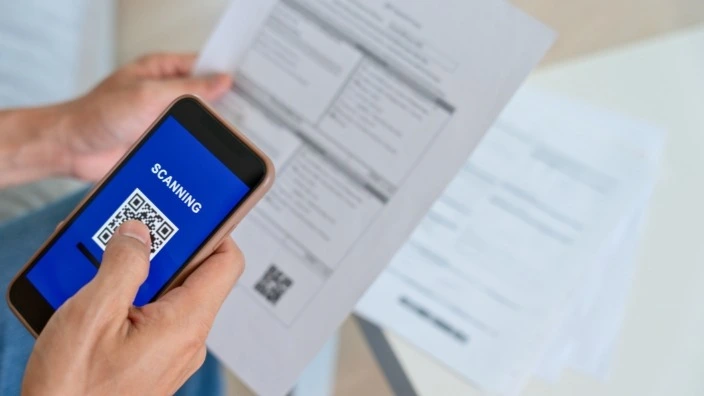
If you have a positive payment trajectory in your credit report, you can manage to justify the eviction. Of course, your eviction would be a hurdle to catch a new premises on rent but even then you would have some documentary evidence to prove no fault on your part. It can help you to get over the new premises. Having such kind of documentary evidence in your hand, you could have a legitimate expectancy of getting hired.
Get Prepared to Explain Your Eviction
As you know eviction is all about violations on the part of a tenant. It is a general presumption that there must have been some violation by the tenant leading to the filing of an eviction case by the landlord. Therefore, get prepared to explain your side of the argument honestly with trails of payments originally made by you. Also, communicate the steps taken to ensure a clear rental record in your future rent.
Provide References
Though eviction itself refers to a terrible situation in the rental record for the tenants, it may also be helpful to get in touch with the folks with whom you have been meeting in the past for this purpose. You should forward the references when your property manager demands you. Also, try to provide some good references to the new landlord so he can conveniently provide you with premises on a rental basis.
Go for a Private Party
Rental agencies and apartment complexes require you to follow their specific guidelines for taking the properties on rent. They also have to follow regulations in their department. Therefore, it is recommended to interact with the private dealers to get the premises on rent; so they would also have an interest in the commission if the property is let out to you. It has been revealed that the owners of the private properties could be more flexible as compared to the others.
Offer a High Deposit to inspire confidence of landlord
If you are financially stable enough to afford offering a high deposit, it would be your best option which could show the property manager your seriousness towards getting a premises on rent. Most of the time, the owners of private property prefer a heavy chunk of the amount in advance for future months in order to avoid the chances of default in payment. It would help if you offered him 5 or 6 months' advance rent.
Conclusion
It is clear from the facts that eviction from the premises in your credit record or tenant screening record will create massive difficulties for you in future while getting premises on rent. Therefore, it is of significant character to get your eviction off your record.
However, you could contact the court in case of wrongful eviction by presenting proof of wrongful eviction on the part of the landlord. The court will ask you and the landlord to appear before the court to clear the situation. In case of justified eviction, the court will either make you pay all rent, charges, and utility bills through dispute resolution or you will be ordered to leave the house/ premises forthwith or on a specific date.
There are different methods through which you could avoid eviction in your record including expungement, paying rent, and dispute resolution by using agencies to find you private properties where private property owners could be flexible with you on setting the milestones for payment of the outstanding amount of rent.
The US low-income population currently needs many low-income housing units and millions are waiting for their expulsion due to short of residential units. The discriminatory legal practices in some states also need to be addressed.
FREQUENTLY ASKED QUESTIONS:
What are the main steps to remove eviction from your record?
Following are the noteworthy ways to remove your bad credit/ rental history: - - Keep obeying the state laws of tenancy. -Win the eviction case against the landlord. -Attend the hearing and convince the jury. -Submit plausible justification showing no fault on your part. -Coordinate with related agencies to remove the record.
Can you expunge an eviction in NY?
It varies from state to state. Few states allow the removal of bad history while others don’t. Expunging of eviction is possible in Minnesota and D.C. while it is not so in North Carolina and New York.
Can you seal an eviction in Arizona?
As per the law of Arizona; the record of eviction can be sealed in either of the two conditions: - 1.The court enters an order dismissing the case prior to judgment. 2.The court enters a judgment in favour of a tenant.
How do I get rid of an eviction in Texas?
There is no way to expunge your rental record in Texas like in a few other states of the US. However, if there is some apparent mistake on the record, you can apply to make the corrections on the record.
How long the record of the evictions be saved?
According to federal eviction laws of many of the US states, an eviction stays on your record for seven years. The timeline applies to both credit and rental history.

